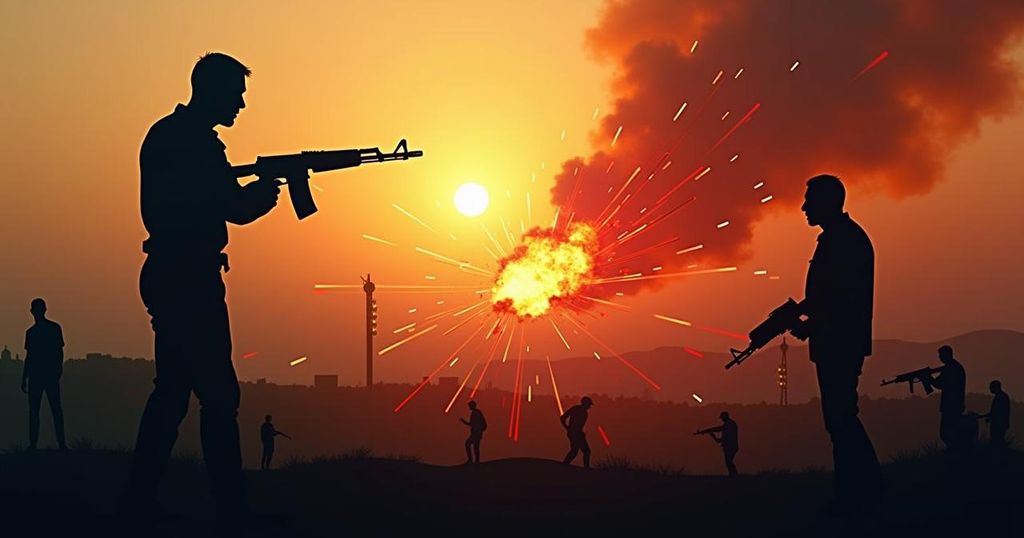The conflict between Israel and Iran has intensified, complicating the political landscape for Vice President Kamala Harris and President Biden in the run-up to the elections. Missiles targeting Tel Aviv have overshadowed campaign efforts, forcing Harris to confront the issue head-on. Netanyahu’s unwavering military stance further complicates prospects for peace, while Harris and her running mate frame leadership as crucial during these volatile times.
The recent escalation in the conflict between Israel and Iran has significantly impacted the political landscape for the Biden-Harris administration as they approach the elections. With missiles launched over Tel Aviv, President Biden and Vice President Kamala Harris find themselves embroiled in a complex geopolitical situation that complicates their campaign messaging. Just six months prior, both leaders hoped the situation in Gaza would stabilize, but the reality proves otherwise. Prime Minister Benjamin Netanyahu has demonstrated his intent to maintain a military focus, countering any hopes of diplomatic resolution. Consequently, Vice President Harris must navigate the perceptions of strength and leadership as her candidacy is jeopardized by the ongoing turmoil. The vice-presidential debate, intended to spotlight Harris’s strengths, became overshadowed by the violence in the region, forcing her to firmly denounce Iran as a “destabilizing, dangerous force.” Meanwhile, her running mate, Governor Tim Walz, emphasized the need for steady leadership in such precarious times, juxtaposing Harris’s and Biden’s approach against that of former President Trump. With November’s election approaching, the ongoing conflict raises critical questions about the public’s perception of the current administration’s foreign policy efficacy and leadership capabilities.
The article discusses the political ramifications of the escalating conflict between Israel and Iran, particularly focusing on its impact on U.S. Vice President Kamala Harris’s campaign as she prepares for the upcoming elections. It highlights the challenges faced by the Biden administration in balancing support for Israel with pressures from the left wing of the Democratic Party advocating for harsher consequences for Israeli actions. The increasing hostilities in the region have reignited discussions on U.S. foreign policy and leadership, crucial factors as the election nears.
In summary, the intensifying Israel-Iran conflict poses severe challenges for the Biden-Harris administration’s electoral strategy, compelling them to address foreign policy amidst pressing political concerns. Vice President Harris’s response to the crisis and the framing of leadership amidst global instability will be pivotal in shaping public perception as elections draw nearer.
Original Source: www.nytimes.com






